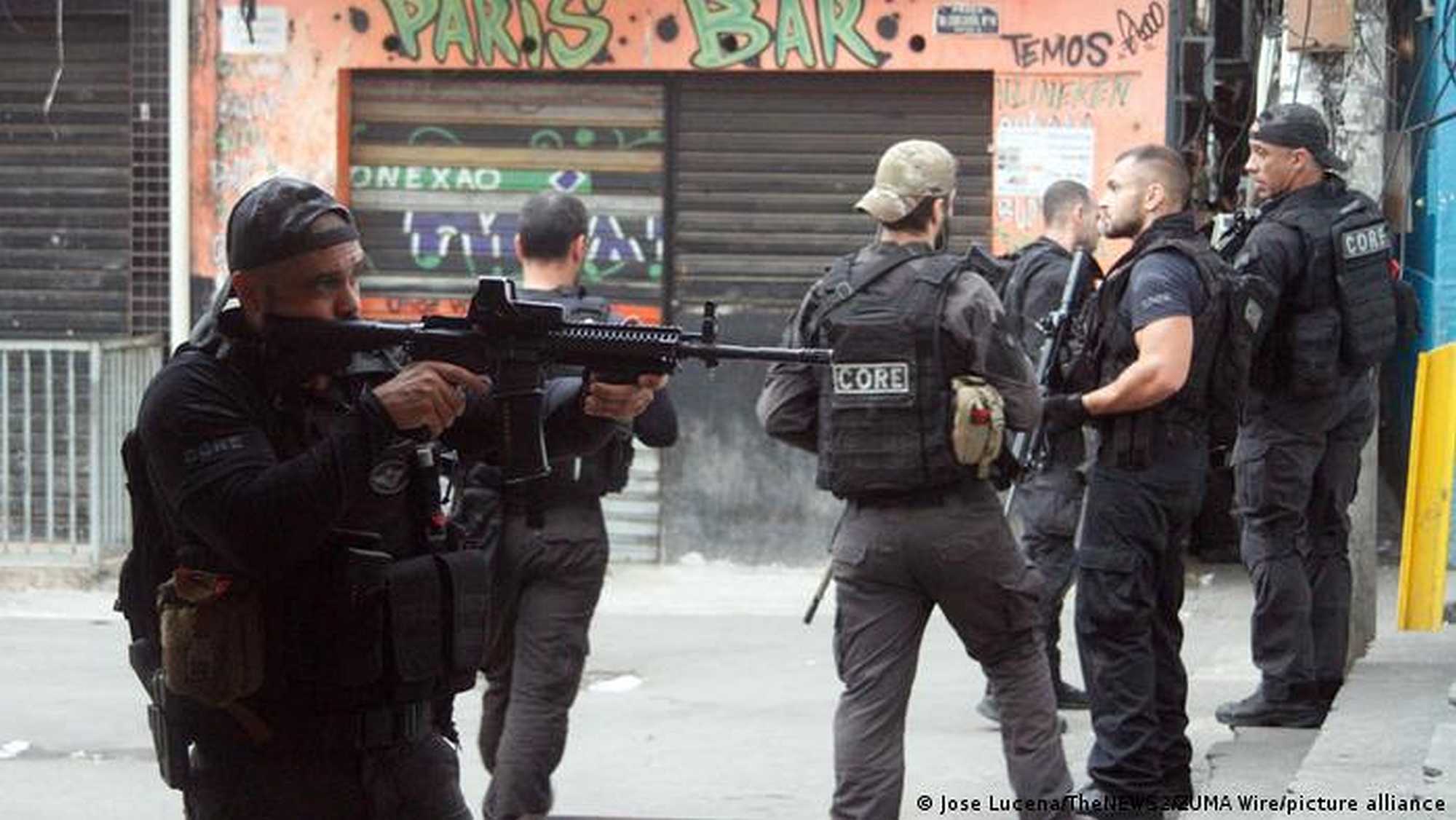The United Nations said it was “deeply disturbed” by the killings of 28 people during a raid on a Rio slum
Police in Brazil on Friday were accused of human rights abuses and extrajudicial killings during an hour-long gun battle in a Rio de Janeiro favela the previous day that left 28 people dead.
A Supreme Court Justice on Friday called for an investigation into the police raid which rights groups said was the deadliest ever in a city notorious for its violent crime.
Justice Edson Fachin ordered the federal and state prosecutors to investigate two videos circulating on social media that appeared to show police killing indiscriminately in Rio’s impoverished neighborhood of Jacarezinho.
“The events reported appear extremely serious. In one video, there is evidence of acts that, in theory, could constitute an arbitrary execution,” he said in the letter to the prosecutors.
Thursday’s police operation, which authorities said targeted a drug gang recruiting teenagers and children, sparked protests across the city accusing officers of perpetrating a “massacre.”
Police HQ Surrounded
Hundreds of protesters gathered outside the police headquarters near Jacarezinho to denounce the violence, carrying banners that read: “Stop Killing Us!”
Witnesses said the northern neighborhood resembled a war zone, with bodies piled up on the streets and pools of blood flowing out of apartments.
“They would have surrendered, but the police came in to kill, kill, kill. Twenty-five mothers crying. I want my son,” said Adriana Santana Araújo, 36, mourning the loss of her 23-year-old son.
Daniele dos Santos said her 32-year-old husband had gone out to buy bread and was caught in the crossfire.
“He got a bullet in the leg and the cop ended up executing him. He was alive. He wasn’t armed. He was just in the wrong place at the wrong time,” she said.
She added that her husband was in construction and worked at a pizzeria, was not involved in crime.
One Police Officer Dead
When the fighting stopped, one police officer and 27 people described by authorities as “criminals” were among those killed.
Rio police had identified the 48-year-old officer who was shot in the head, but none of the others killed in the operation.
They are now facing mounting calls to prove that the suspects were, indeed, “criminals,” and why they were killed and not arrested.
A funeral for the officer was held with a cortege of some 300 police cars blaring their sirens in an emotional tribute.
The police deny any wrongdoing, asserting that the officers followed protocols and fired only to defend themselves.
“There were no suspects killed. They were all traffickers or criminals who tried to take the lives of our police officers and there was no other alternative,” Felipe Curi, a detective in Rio’s civil police said at a news conference.
Bolsonaro Allies Defend Police
The inner circle of President Jair Bolsonaro, a former army captain who ran for office on a pro-gun, pro-security platform, was also quick to rally behind the police officers.
His vice-president Hamilton Mourão, an army general, said the suspects killed in the operation were “all bandits.”
Bolsonaro’s son Eduardo, a congressman, slammed those questioning the police as “bums.”
“There’s a police officer murdered, and they defend the murderers,” he wrote on Twitter.
The far-right president has frequently advocated diminishing legal constraints on officers’ use of lethal force against criminals.
UN, Amnesty Condemn Killings
The United Nations and Amnesty International have condemned the police operation, expressing shock and outrage.
Rupert Colville, the spokesperson for the UN High Commissioner for Human Rights said his office was “deeply disturbed” by the killings and called for an “independent, thorough and impartial investigation” into the raid.
Amnesty dubbed the police operation as “reprehensible and unjustifiable.”
“The Rio de Janeiro state prosecutor’s office must conduct a prompt, exhaustive, independent, and effective investigation into these atrocities, following international standards so that the agents of the state who ordered, committed, or participated in this massacre are held accountable and face justice,” it said in a statement.
Governor Defends Police
Rio de Janeiro Governor Cláudio Castro stood by the police’s actions in Jacarezinho, claiming that the suspects’ response had been “brutal.”
The operation was considered the most lethal in the history of Rio de Janeiro.
Castro insisted that “the state government is most interested in investigating the circumstances of the facts,” because “it must be made clear that yesterday’s operation carried out by the Civil Police was the faithful fulfillment of dozens of arrest warrants. It was 10 months of investigative work that revealed the routine of terror and humiliation that the traffic imposed on residents. Children were enticed and co-opted for the crime. Entire families were driven out of their homes and killed.”
The governor said he had discussed Thursday’s actions with Attorney General Luciano Mattos, Federal Supreme Court (STF) Justice Edson Fachin, and with the public defender, Rodrigo Pacheco.
“The reaction of the bandits was the most brutal recorded in recent times. Weapons of war, ready to repel the action of the state and avoid arrests at any cost. Nowhere in the world are the police received with rifles and grenades when they are going to do their job. Since the event, I have determined total transparency to the process,” Castro said.
Meanwhile, during the burial of fallen Inspector André Frias, Civil Police Secretary Allan Turnowski, praised the agents for their actions in Jacarezinho and said that according to intelligence information all of the 27 suspects who died were “soldiers” of the drug trade, acting as the armed wing of the criminal organization in Jacarezinho. Three of them were denounced by the Prosecutor’s Office for drug trafficking and were among the police’s most wanted.
“What the civil police showed yesterday was technical, it was maturity, it was professionalism, to show society that the drug dealer who invaded the resident’s house, he is the enemy of all society,” Turnowski said. “It was not in vain, André, it was not in vain,” he concluded.
DW

